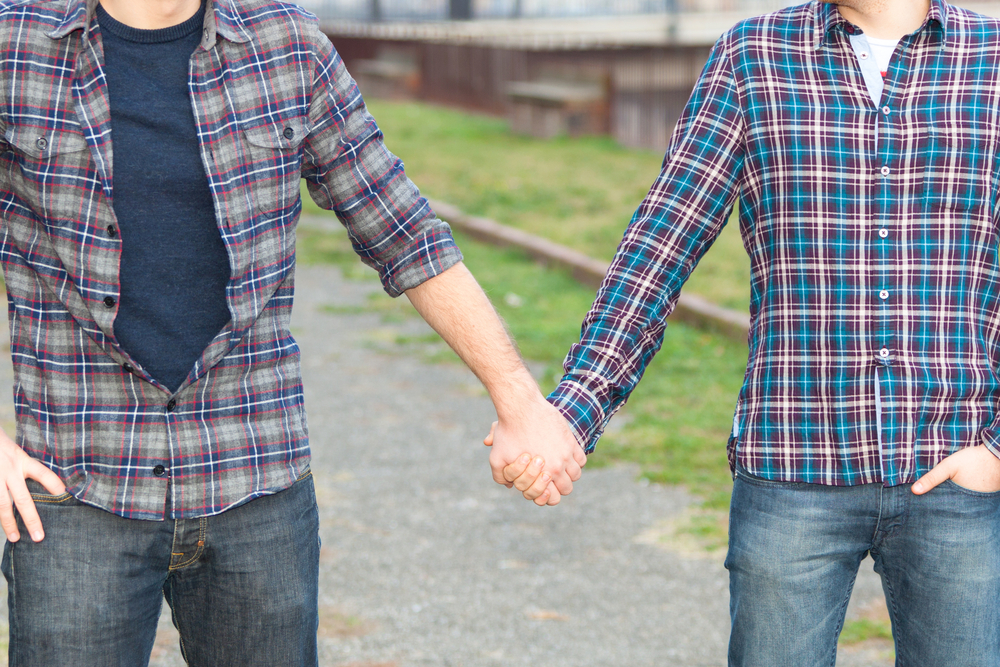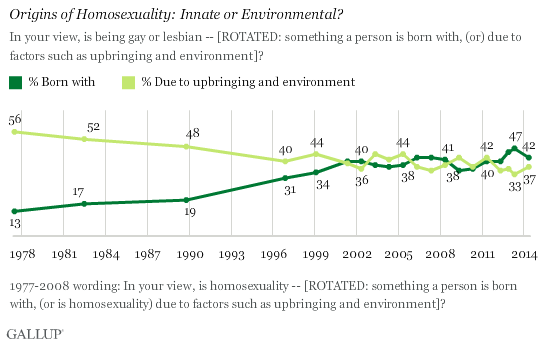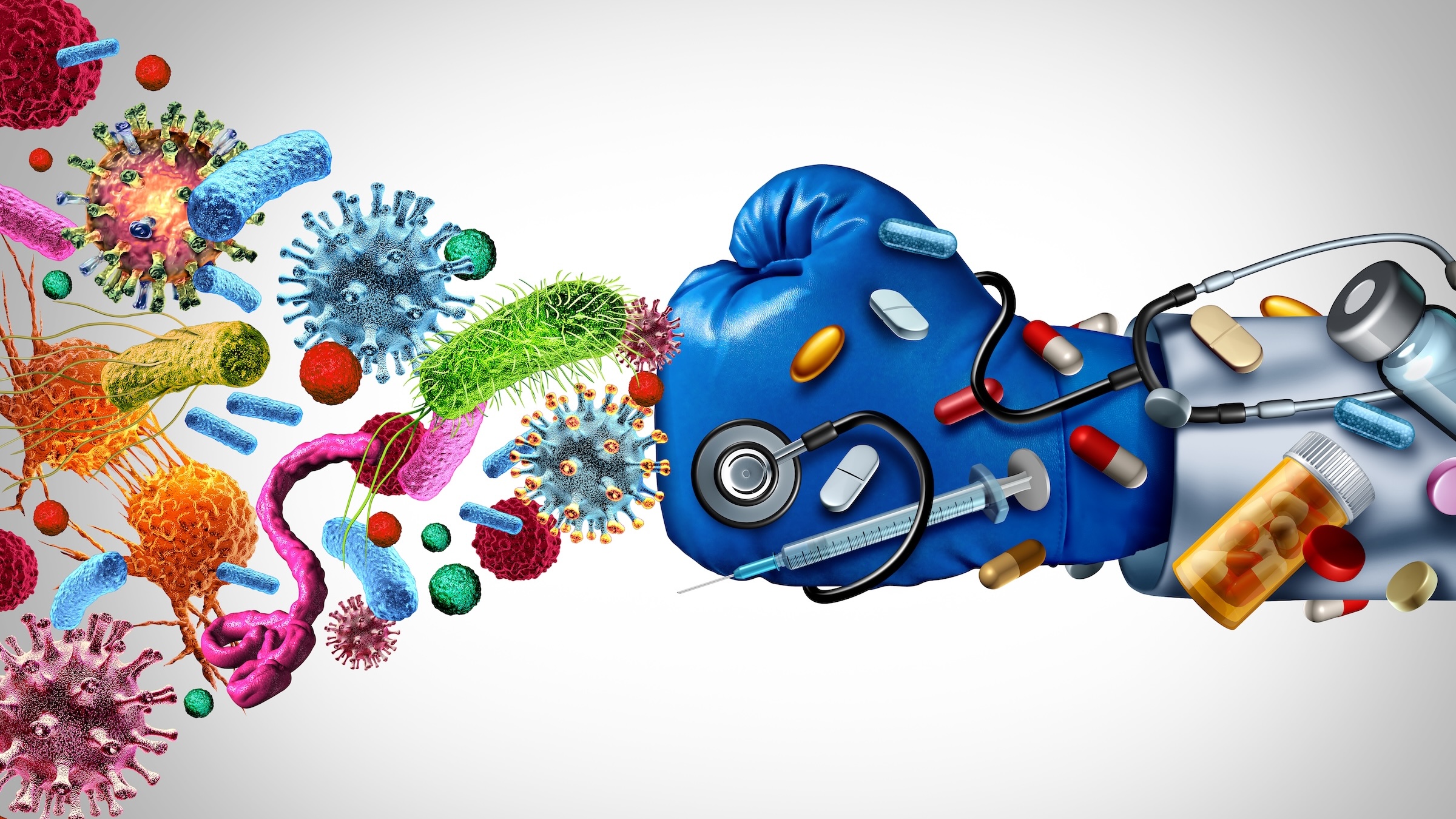Less Than Half of Americans Think People Are Born Gay, Poll Shows

Same-sex marriage has been rapidly gaining support in the United States, and yet Americans have been divided for the last decade on whether they think people can be born gay, a new Gallup poll shows.
Forty-two percent of Americans say people can be born gay, down slightly from 2013, when 47 percent said the same, the survey found. Meanwhile, more than a third of Americans (37 percent) attribute homosexuality to external factors, such as a person's upbringing and environment.
Gallup first polled Americans about the origins of homosexual orientation in 1977. At that time, 56 percent thought being gay or lesbian was the result of a person's environment or upbringing, while only 13 percent believed people could be gay at birth, though that doesn't mean they have same-sex attractions at the very moment they are born. By 2001, this gap closed, but Americans have remained roughly divided on the issue since then. [Can People Stop Being Gay?]
Gallup officials said the contention surrounding the question of sexual orientation might reflect "a lack of input from the scientific community, which historically has not shied away from offering its opinion on lesbian, gay, bisexual or transgender (LGBT) issues and questions."
The American Psychological Association (APA) stopped classifying homosexuality as a disorder in 1973. According to the APA today, there is little scientific consensus about the exact factors that cause a person to be gay, but most people don't experience a choice about their sexual orientation.
Evidence is mounting that homosexuality is at least partly genetic and biological. For instance, a review of studies, published in 2001, found that identical twins, who have matching genes, are much more likely to be of the same sexual orientation than fraternal twins, who share about half of their genes with each other. Another study, detailed in 2006 in the journal Human Genetics, revealed a mother's X chromosome can affect whether she has a gay son. Epigenetics, a process that turns genes on and off, could also play a role in homosexuality, according to a study published in the journal The Quarterly Review of Biology in 2012. Other research has suggested hormone exposure in the womb can shape a person's sexual orientation.
Regardless of these studies, the new Gallup poll revealed divisions of opinion largely along demographic, political and religious lines. College grads, whites, females, liberals, Democrats, high-income earners and people who aren't churchgoers are most likely to think people can be born gay.
Get the world’s most fascinating discoveries delivered straight to your inbox.
The poll was conducted May 8-11, 2014, through phone interviews with a random sample of 1,028 adults in all 50 states and the District of Columbia. The results are weighted to be nationally representative and have a sampling error of plus or minus 4 percent.
Gallup released results from a separate survey this month that found support for gay marriage had reached a new high, with 55 percent of Americans now saying they are in favor of same-sex marriage. In 1996, the first time Gallup asked about same-sex marriage in a survey, 68 percent of Americans said they were opposed.
Follow Megan Gannon on Twitter and Google+. Follow us @livescience, Facebook & Google+. Original article on Live Science.

 Live Science Plus
Live Science Plus






